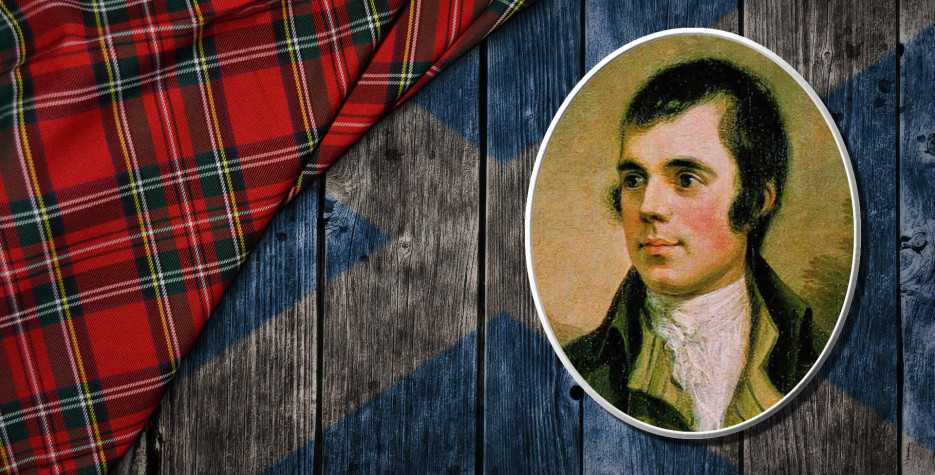When is Burns Night?
Burns Night is a cultural event that takes place on 25th January in Scotland.
It celebrates the life and work of Robert Burns, a Scottish poet who is widely seen as the national poet of Scotland.
While Burns Night is not a national holiday, it is arguably more widely celebrated than St. Andrew's Day, Scotland's national day.
History of Burns Night
Robert Burns was born on 25 January 1759 in Alloway, Scotland. Robert was born into a poor family, but his father ensured that he received a good education and Robert's interest in reading fuelled his poetic output.
While earning a living as a farm worker, he started composing poetry as he worked. His first collection was published in 1786 and became an instant success, and Burns was seen as a leading light in the Romantic movement.
Only 37, Robert Burns died from a rheumatic condition on 21 July 1796.
Did you know?
Robert Burns' funeral took place on 25 July 1796, the day that his son Maxwell was born.
Despite his global fame, Robert Burns died with only £1 to his name.
The tradition of a Burns night (Burns supper) began shortly after the poet's death when some of his friends gathered to remember Robert and his poetry on the anniversary of his birth.
As Robert Burns gained prominence as the greatest of Scottish poets, so the tradition of honouring his work on Burns night grew in popularity.
Though they may differ in formality, Burns evenings generally follow a similar pattern. A meal with haggis is served.
What is Haggis?
Haggis is a Scottish dish made from Sheep's heart, liver, and lungs minced with onion oatmeal, suet and spices. It was traditionally encased in the animal's stomach, though artificial casings are now more common.
Since 1971 it has been illegal to import haggis into the US from the UK due to a ban on food containing sheep lungs, which can constitute up to 15 percent of some traditional recipes.
A second key element is the drinking of a good Scottish single malt whiskey in honour of the poet.
Finally, the activities of the evening are framed within his poetry. When the haggis is carved, 'To a Haggis' is recited, with its famous line, "Great chieftain o' the pudding race". Before the meal another of Burns' poems, the Selkirk Grace is read.
The evening ends aptly with "Auld Lang Syne". Robert Burns was the first to write down this old Scottish folk song, and its popularity is now global as no New Year's Eve party is complete without its rendition.
Did you know?
In 1956, the Soviet Union became the first country to honour Robert Burns with a commemorative stamp.
There are more statues, monuments and memorials dedicated to Robert Burns than any other non-religious figure, after Queen Victoria and Christopher Columbus.
In 2009, Scottish TV held a public vote on who was "The Greatest Scot" of all time. Robert Burns won, beating William Wallace of 'Braveheart' fame.
In 2008, Bob Dylan named Robert Burns’s poem ‘A Red, Red Rose’ his single biggest inspiration.


